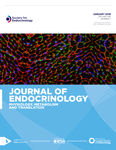Preconditioning actions of aldosterone through p38 signaling modulation in isolated rat hearts
- Takuya Yoshino,
- Tomohisa Nagoshi⇑,
- Ryuko Anzawa,
- Yusuke Kashiwagi,
- Keiichi Ito,
- Daisuke Katoh,
- Masami Fujisaki,
- Yosuke Kayama,
- Taro Date,
- Kenichi Hongo and
- Michihiro Yoshimura
- Division of Cardiology, Department of Internal Medicine, The Jikei University School of Medicine, 3-25-8, Nishi-Shinbashi, Minato-ku, Tokyo 105-8461, Japan
- Correspondence should be addressed to T Nagoshi; Email: tnagoshi{at}jikei.ac.jp
Abstract
Although persistent excessive actions of aldosterone have unfavorable effects on the cardiovascular system, primarily via mineralocorticoid receptor (MR)-dependent pathways, the pathophysiological significance of aldosterone cascade activation in heart diseases has not yet been fully clarified. We herein examined the effects of short-term aldosterone stimulation at a physiological dose on cardiac function during ischemia–reperfusion injury (IRI). In order to study the effects of aldosterone preconditioning, male Wistar rat Langendorff hearts were perfused with 10−9 mol/l of aldosterone for 10 min before ischemia, and the response to IRI was assessed. Although aldosterone did not affect the baseline hemodynamic parameters, preconditioning actions of aldosterone significantly improved the recovery in left ventricular contractility and left ventricular end-diastolic pressure associated with a reduced activity of creatine phosphokinase released into the perfusate after ischemia–reperfusion. Notably, the MR inhibitor eplerenone did not abrogate these beneficial effects. Biochemical analyses revealed that p38MAPK phosphorylation was significantly increased during aldosterone preconditioning before ischemia, whereas its phosphorylation was substantially attenuated during sustained ischemia–reperfusion, compared with the results for in the non-preconditioned control hearts. This dual regulation of p38MAPK was not affected by eplerenone. The phosphorylation levels of other MAPKs were not altered by aldosterone preconditioning. In conclusion, the temporal induction of the aldosterone cascade, at a physiological dose, has favorable effects on cardiac functional recovery and injury following ischemia–reperfusion in a MR-independent manner. Phasic dynamism of p38MAPK activation may play a key role in the physiological compensatory pathway of aldosterone under severe cardiac pathological conditions.
- Received in final form 13 May 2014
- Accepted 3 June 2014
- Made available online as an Accepted Preprint 3 June 2014
- © 2014 Society for Endocrinology











